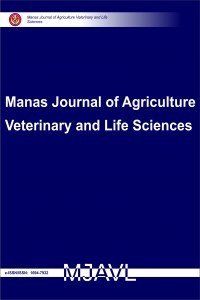Use of Dental İmplantation in a Dog With Hypodontia in Permanent Dentition
The purpose of this article is to evaluate clinical properties of a rare hypodontia case in the permanent dentition in a dog, and its treatment by dental implantation. A 1.5‑year‑old male Canary dog was referred to the surgery department for missing of a tooth. All primary teeth were present except for the right mandibular fourth premolar (P4) at the time of the first dental examination. Mandibular oblique radiographs confirmed the finding of P4 hypodontia. The implant system consisted of an endosseous component, a transgingival collar, a collar-retaining screw, a coping, and a coping-retaining screw. Ceramic implant tooth was placed and fixed by dental acrylic. There was no any implant stability after 3 month the surgery. In conclusion, hypodentia is a rare abnormality that we now know can be seen in dogs. It can reconstructed by implant system and the owner’s dissatisfaction can be fulfiled.
Keywords:
dental implant, dog hypodontia,
___
- Schroeder, H.E. (1991). Developmentand Structure of the Tissues of the Tooth, Clinical Consideration. In: Schoeder, H.E. (Ed.), Oral Structural Biology. Thime, Stuttgart,pp. 171-186. https://lib.ugent.be/en/catalog/rug01:000269550
- Pavlica, Z., Erzaveci. V., Petelin. M. (2001). Teeth abnormalities in the dog. ACTA Vet Brno, 70, 65-72. https://www.omicsonline.org/veterinary-science-journals.php?gclid=EAIaIQobChMIltnt8dSb3AIVBp3VCh0IOANJEAAYASAAEgJ6pfD_BwE
- Şişman, Y., Uysal, T., Gelgor, I. (2007). Hypodontia. Does the prevalence and distribution pattern differ in orthodontic patients? Europ J Dent, 1, 167-173. https://www.ncbi.nlm.nih.gov/pmc/articles/PMC2638243/
- Ekren, O., Kurtoğlu, C. (2009). The effect of implant abudment connection type to the clinical success of implant supported fix restorations: A literature reviev. Atatürk Univ J Dent Fac, 19, 131-137. http://dergipark.gov.tr/ataunidfd/issue/2484/31794
- Kertesz, P. (1993). Dental Development and Abnormalities. In: Kertesz, P. (Ed.), A Colour Atlas of Veterinary Dentistry and Oral Surgery. Wolfe, London,pp. 51-72. https://www.cabdirect.org/cabdirect/abstract/19932281193
- Kim, S.J.,Yoo, J., Kim, Y.S., Shin, S.W. (2010). Temperature change in pig rib bone during implant site preparation by low-speed 6 International Journal of Biomaterials drilling. J Appl Oral Sci, 18, 22-527. https://koreauniv.pure.elsevier.com/en/publications/temperature-change-in-pig-rib-bone-during-implant-site-preparatio
- Scarano, A., Piattelli, A., Assenza, B., Carinci, F.,Di Donato, L.,Romani, G.L., Merla, A. (2011). Infrared thermographic evaluation of temperature modifications induced during implant site preparation with cylindrical versus conical drills. Clin Impl Dent Rel Res, 13, 319-323. https://www.ncbi.nlm.nih.gov/pubmed/19681941
- Deporter, D.A., Friedland, B., Watson, P.A., Pilliar, R.M., Howley, T.P., Abdulla, D., Melcher, A.H., Smith, D.C. (1986). A clinical and radiographic assessment of a porous surfaced, titanium alloy dental implant system in dogs. J Dent Res, 65, 1071-1077. https://www.ncbi.nlm.nih.gov/pubmed/3525628
- ISSN: 1694-7932
- Yayın Aralığı: Yılda 2 Sayı
- Başlangıç: 2013
- Yayıncı: KIRGIZİSTAN-TÜRKİYE MANAS ÜNİVERSİTESİ
Sayıdaki Diğer Makaleler
Ümit GÜRBÜZ, Fatih Ramazan İSTANBULLUGİL, Yusuf BİÇER
İhsan KİSADERE, Nurcan DÖNMEZ, Nariste KADIRALİYEVA, Abdulkadir KESKİN, Mustafa GARİP, Ruslan SALIKOV
Serap Kılıç ALTUN, Mustafa ATASEVER
Bilginer TUNA, İhsan KİSADERE, Nurcan DÖNMEZ
Aytekin GÜNLÜ, Orhan ÇETİN, Mustafa GARİP, Kemal KIRIKÇI
Serap Kılış ALTUN, Nilgün PAKSOY, Hatice KARA, Abdullah ŞAKAK
